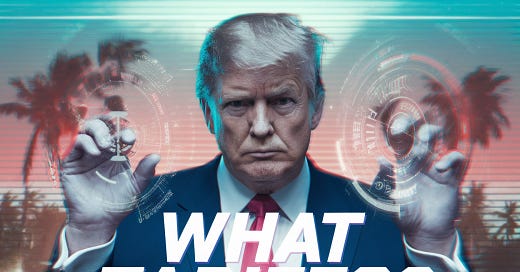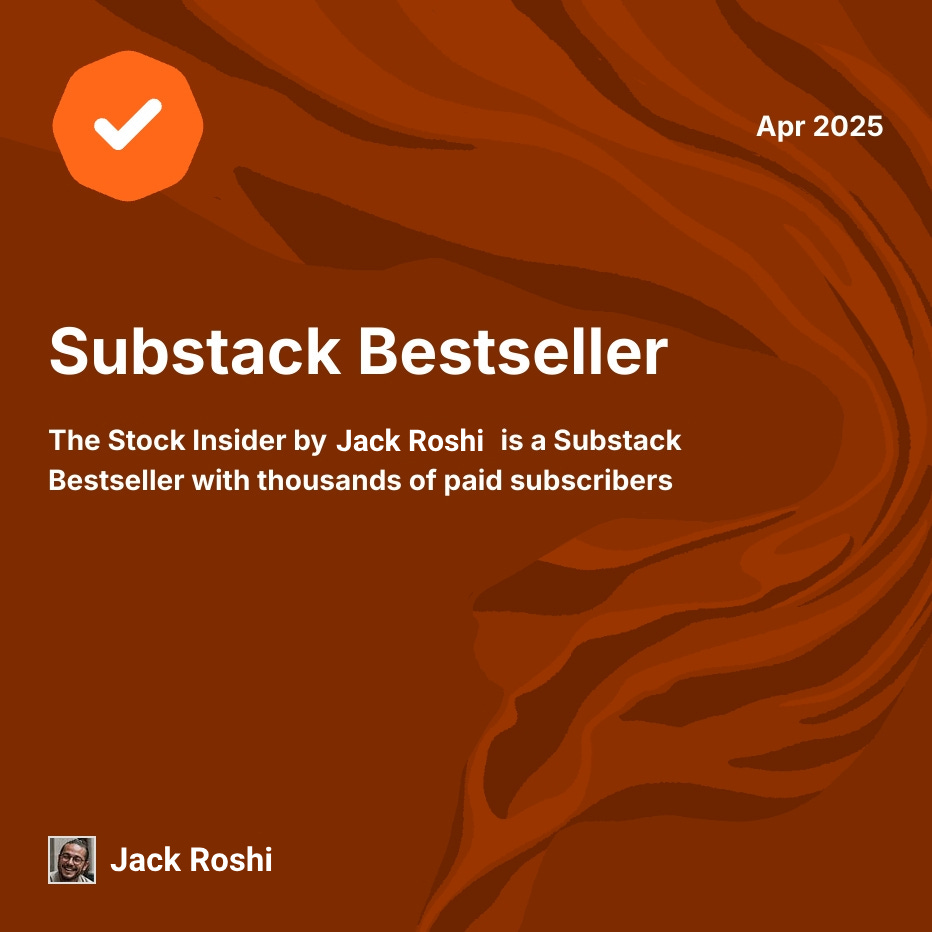⭐️ What Trump Really Did to The Economy and Your 401(k)
History doesn’t repeat itself. It refinances.
To Smart Investors,
First off, thanks y’all for making this a reality:
The best Stock Scanner in the world is coming out next week. It will be available to all past and present paying subscribers.
You can read about all of the tools that I will be releasing on my new financial hub: https://thestockinsider.com
On with the rant:
What if Napoleon invaded Russia in 1812, not for land or glory, but to distract the bondholders?
The French treasury had a problem: Dutch bankers demanding higher yields held 60% of its debt.
So Bonaparte marched east, spooking markets into a flight to safety—French rentes.
By winter, yields had collapsed.
Moscow burned.
The Dutch got crumbs.
History doesn’t repeat itself. It refinances.
The Debt Deluge
This year, the U.S. Treasury must roll over $8.9 trillion in maturing debt. To contextualize:
That’s $24.4 billion daily.
Enough to buy 487 million ounces of gold—every vault at Fort Knox, twice.
Roughly 14% of global GDP, looking for a home.
The math is ruthless. Every 0.1% rise in the 10-year Treasury yield adds $8.9 billion in annual interest costs. At 4.5%, the total bill eclipses defense spending. At 5%, it rivals Social Security.
So when the White House threatened global tariffs last week, markets yawned at the trade implications.
The real signal? A desperate bid to manufacture demand for Treasuries.
Act I: Chaos as Catalyst
Tariffs were never about protectionism. They were a liquidity test.
By threatening 50% duties on imports from 90 nations, the administration weaponized uncertainty.
Predictably, capital fled to the dollar—Treasuries rallied, yields dipped.
For 72 hours, it worked.
Then, the glitch.
A $62 billion 10-year auction tailed by 2.1 basis points.
Translation: Buyers demanded higher yields than expected. The "flight to safety" became a sprint from solvency.
Why? Because tariffs don’t occur in a vacuum. China retaliated by dumping $28 billion in Agency MBS. Saudi Arabia quietly shifted oil invoices to yuan. India accelerated its bond settlement system bypassing CHIPS.
The world’s dollar creditors began whispering the unthinkable: What if the hegemon can’t service its debt?
Act II: The Confidence Game
Sovereign debt rests on a paradox: It’s risk-free only if everyone agrees it is.
When yields spiked to 4.8%, the Treasury’s debt advisory committee panicked. Emergency meetings were held. Spreadsheets wept. The solution? Reverse course.
Pausing tariffs wasn’t diplomacy. It was triage.
By exempting 88 nations (excluding China), the administration achieved three goals:
Flood the zone with liquidity: Global supply chains breathed easier, easing dollar funding strains.
Isolate the yuan bloc: China’s 125% tariff pain became a PR win—"tough on Beijing" without spooking Tokyo or Brussels.
Restore the T-bill halo: With "crisis" averted, pensions and insurers piled back into longer-dated bonds.
The 10-year yield settled at 4.3%. Crisis deferred.
The Unseen Hand
Modern monetary theory is a fairy tale. The real religion is collateral velocity.
Tariffs disrupted the global repo market, where $4 trillion in daily trades use Treasuries as fuel.
As uncertainty grew, dealers demanded higher haircuts—forcing hedge funds to sell bonds to meet margin calls.
This reflexive loop nearly triggered a 2020-style liquidity crunch.
The Fed’s solution?
A stealthy $120 billion swap line with the ECB, funneling dollars to European banks holding U.S. debt.
No press release.
No congressional approval.
Just the plumbing of empire.
Epilogue: The Great Charade
Markets rallied 7% on the tariff “deal.” But watch the shadows:
Commercial real estate (CRE) CLOs are imploding, with $1.2 trillion in maturities due by 2026.
Private equity portfolios are stranded, as refinancing costs now exceed target IRRs.
Household debt delinquencies hit 2009 levels, yet credit card ABS spreads remain eerily tight.
None of this matters.
Because the only metric that counts is the 10-year yield.
If you keep it tame, the debt machine will hum. If you let it spike, the empire will become a junk-rated startup.
Final Trade
The smart money isn’t buying stocks or bonds. It’s shorting time.
How?
30-year STRIPS: Betting long-term yields will compress as pensions scramble for duration.
Argentine wheat futures: The only G20 nation not reliant on dollar debt (they’ve already defaulted).
Offshore yuan volatility: China’s retaliation will be financial, not commercial.
But for the retail investor? Do nothing. (not financial advice)
The game is rigged, the players are cornered, and the clock is ticking.
The Treasury will do whatever it takes to keep yields docile—even if it means sparking a trade war and then aborting it.
Napoleon knew: Debt is war by other means.
Sleep well.
—Jack
P.S. The Dutch bankers eventually got their yield. It came in the form of cannonballs.






Fantastic write up! I love to hear about the real inner workings of the economy. Thank you for an insightful x-ray of what’s happening behind the scenes.
Jack, that was the best write up on the tariff events I’ve seen all week! Thank you.